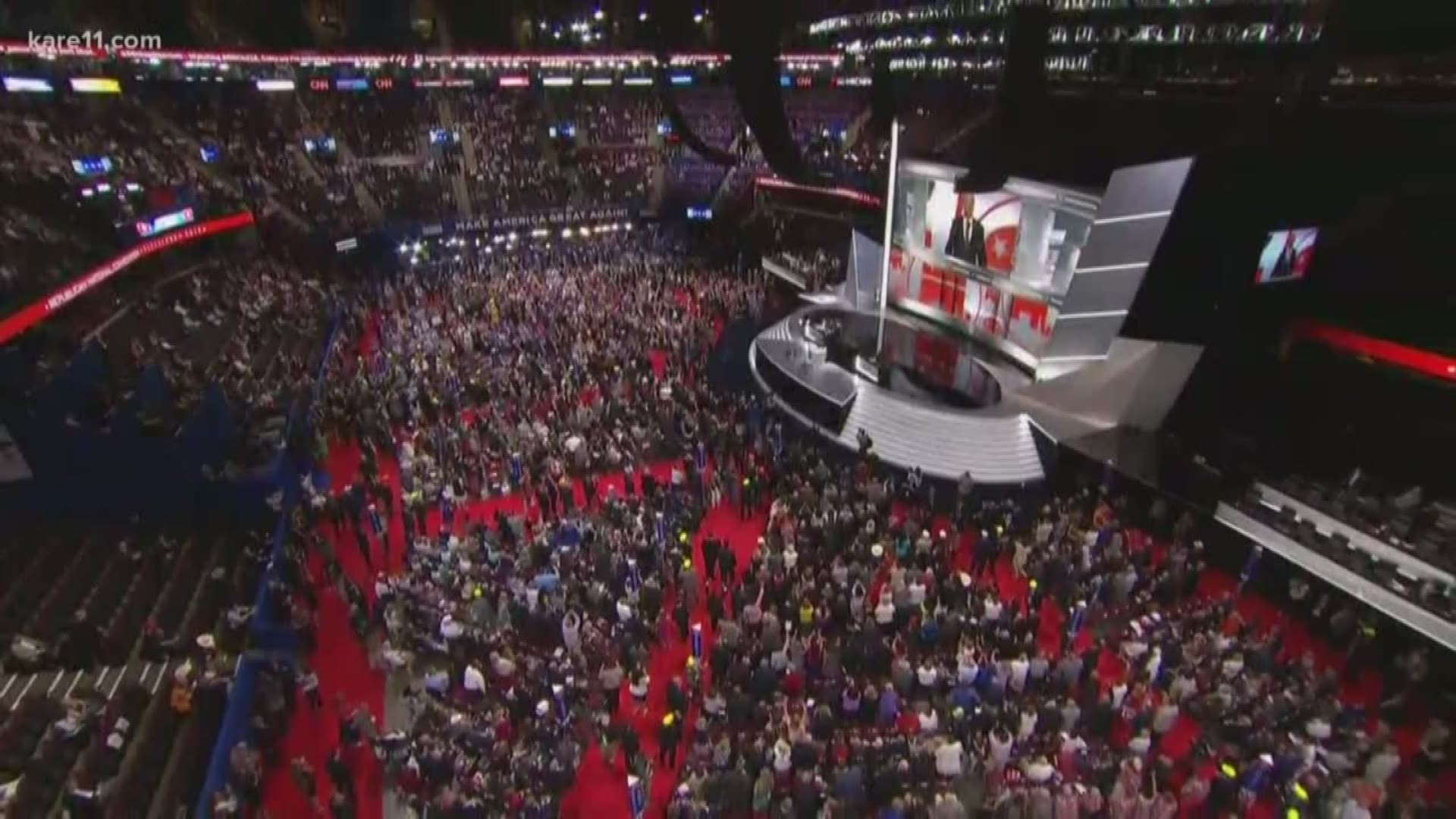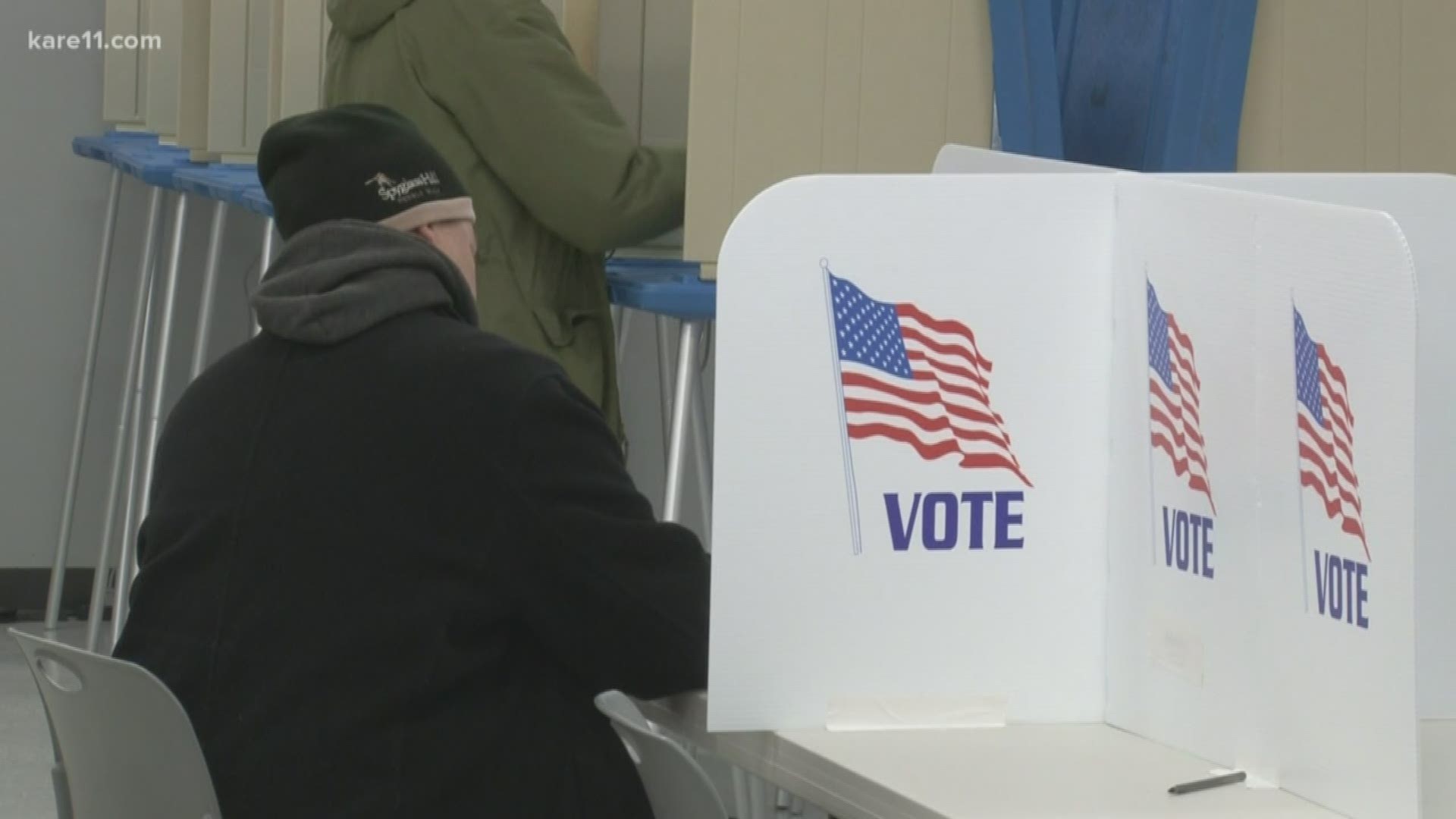ST PAUL, Minn. — A group of Republican legislators are pressing a ballot privacy bill that will put them at odds with the chair of the state party.
Rep. Peggy Scott of Andover announced Wednesday she'll introduce a bill that would bar election officials from recording which party's ballot voters choose in the March 3 presidential primary.
"Privacy is central to free and fair elections, and I believe that no person should have their party choice recorded as a prerequisite to voting," Rep. Scott remarked.
She said she'd heard from many constituents who are concerned that their choice of ballot -- Republican or Democrat -- will be shared with the state's political parties and national parties.
The bill that set up Minnesota's first presidential primary in decades requires voters to pick either the DFL or GOP ballot. That choice is to be recorded by elections officials.
A list of who picked which ballot -- name, home county, and party picked -- will be transmitted to the four major parties in Minnesota two months after the election.
Minnesotans don't register by party when they register to vote, so this will mark the first time the state has ever recorded any data that ties individual voters to a particular political party.
Rep. Scott says she wants the changes made before the election. Under her bill those who have already voted in early absentee voting would have their information purged.
Republican Sen. Mary Kiffmeyer and Minnesota GOP Party Chair Jennifer Carnahan are both opposed to making any changes to the presidential primary law. Carnahan told KARE that the Republican party can be trusted to keep that information private, and that voters need not worry about it falling into the wrong hands.
Carnahan said dozens of states across the nation regularly submit ballot choice information to their national parties, and she's unaware of that data being misused or weaponized in any way.
DFL Party Chair Ken Martin has acknowledged the privacy fears of voters and worries it could affect turnout. He backs a different piece of legislation that would bar state parties from using the ballot choice data but would transmit it to national parties for the limited purpose of verifying the results of the primary.
Martin told reporters that the Democratic National Committee, or DNC, won't seat Minnesota delegates to the national convention if the state party doesn't receive that data and forward it to the national party. In that case the primary would be meaningless, because Minnesota's results would have no bearing on the presidential nominating process.
Rep. Pat Garofalo, who support's Scott's bill, said he doesn't believe the national party will disqualify Minnesota's delegates and risk alienating Democrats in Minnesota.
"They are not going to remove delegates that are duly elected, a portion, from the state of Minnesota at their national conventions. If they did it would be a political disaster for them in the state of Minnesota."
Secretary of State Steve Simon said he applauds the efforts to maintain voter privacy in Minnesota, and urged lawmakers to find a way to balance that against the national parties' data demands.
"What the legislators proposed today is something I’ve advocated for in the past as well, and is the ideal solution," Simon told KARE.
"Unfortunately, my understanding is that this isn't acceptable to the major national party committees, and would risk nullifying the entire contest. Next week I will be putting forth a proposal that will balance both the need for voter privacy and the national parties’ apparent requirements."


